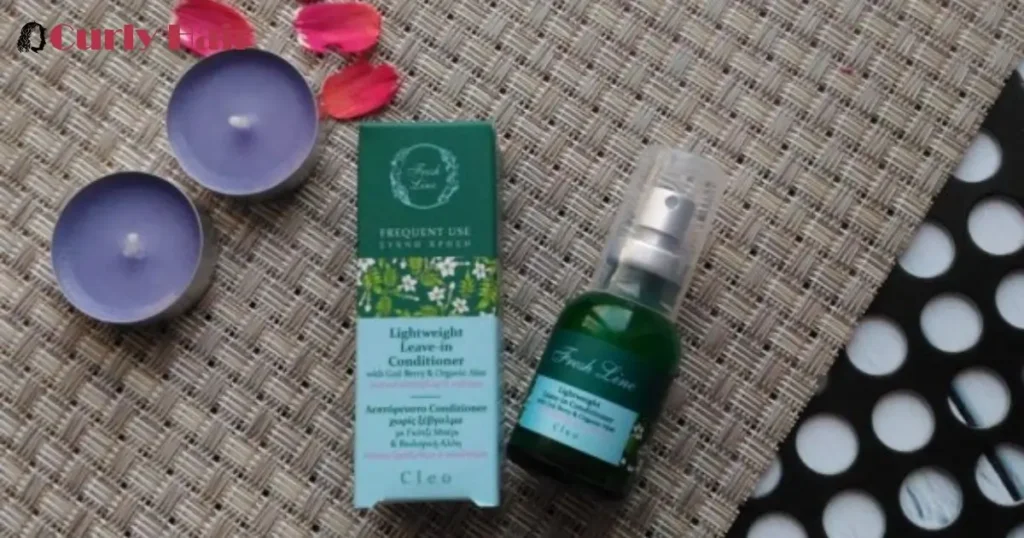Greek curly hair is unique, with thick, voluminous curls that demand a tailored care routine. Embracing this beautiful texture naturally involves focusing on hydration, moisture retention, and gentle handling. Greek curly hair tends to be high porosity, meaning it absorbs moisture quickly but can lose it just as fast.
This makes it essential to create a balanced routine using the right products and techniques. Whether you’re dealing with oily curly hair or seeking more curly hair volume, this guide will help you care for your curls while enhancing their natural shine and growth.
What Makes Greek Curly Hair Different?
Greek curly hair falls within the 2C to 3C curl pattern range, making it wavy to curly with noticeable volume. Here’s a breakdown of key characteristics:
- Thick strands: Greek curls are often thick, which can weigh down with heavy products.
- High porosity: Greek curly hair absorbs moisture but struggles to retain it, making it prone to dryness.
- Frizz-prone: Due to humidity and lack of moisture retention, frizz is a common issue.
Understanding these traits will help you develop the right hair care routine. Now, let’s dive into how to care for curly thick hair naturally.
Start With a Sulfate-Free Cleanser
One of the best ways to care for Greek curly hair naturally is by using a sulfate-free shampoo or co-wash. Sulfates strip natural oils from the hair, leading to dryness and frizz, especially for high-porosity hair.
Tips:
- Cleanse your hair once a week to prevent over-stripping.
- Incorporate a co-wash (cleansing conditioner) between washes for extra hydration.
Deep Condition Weekly
Because Greek curly hair tends to be high porosity, it’s crucial to incorporate deep conditioning into your weekly routine. Deep conditioners help lock in moisture, repair damage, and prevent breakage, especially at the ends.
What to Look For:
- Natural oils like argan, olive, or jojoba oil.
- Protein-free masks for dry, brittle hair.
- Leave-in conditioners containing glycerin or aloe vera.
This step helps with curly hair growth by strengthening the hair from the inside out.
Use Lightweight Leave-In Products

Heavy creams can often weigh down your curls. Instead, opt for a lightweight leave-in conditioner or curl serum. These products hydrate and define curls without compromising the natural volume or causing buildup.
Application Tip:
- Apply the leave-in conditioner to soaking wet hair.
- Smooth the product from root to tip using the “praying hands” method.
A curl defining gel will give hold without sacrificing natural movement.
Master the LOC or LCO Method
The LOC (Liquid, Oil, Cream) or LCO (Liquid, Cream, Oil) method locks in moisture for a longer-lasting hydration effect. This is particularly helpful for managing oily curly hair that still needs moisture without the heaviness of excess oils.
Example Routine:
- Liquid: Hydrating leave-in conditioner or water.
- Oil: Light oils like argan or jojoba oil.
- Cream: Lightweight curl creams or styling products.
This method helps reduce frizz and enhance curly hair volume.
Avoid Heat and Embrace Air Drying
Heat tools such as flat irons and curling wands can damage Greek curly hair over time, leading to broken curls and excessive frizz. Embrace air-drying as a gentler alternative.
Tips:
- Air-dry your curls after applying your products.
- Use a microfiber towel or cotton T-shirt to blot excess water (never rub!).
This prevents the risk of frizz and ensures your curls retain their natural pattern.
Detangle Gently and Consistently
Greek curly hair is prone to tangling, particularly if it’s long or layered. Always detangle when hair is wet, using a wide-tooth comb or your fingers.
Detangling Tips:
- Use a slip-rich conditioner or leave-in for easier detangling.
- Start detangling from the ends, working your way up to avoid pulling or breakage.
- Detangle in small sections to minimize stress on the strands.
Night Protection: The Game Changer
Don’t overlook night care! Sleeping on cotton pillowcases or rubbing your curls can lead to frizz and breakage. Protect your curls at night for better longevity and hair health.
Night Care Tips:
- Sleep with a satin or silk bonnet to prevent friction and moisture loss.
- Use a pineapple updo (high, loose ponytail) to preserve curl shape.
- Refresh curls in the morning with water or a leave-in mist.
Embrace Protective Styles

To give your curls a break, incorporate protective hairstyles like twists, braids, or buns. This reduces manipulation, helping to retain curly hair growth and prevent breakage.
Styling Options:
- Loose two-strand twists.
- Curly buns or braided crowns.
- Greek goddess-inspired updos.
These styles not only protect your ends but also provide variety to your look.
Understand Your Hair’s Needs Over Time
Your hair changes over time due to various factors like diet, hormones, or the weather. It’s essential to periodically assess your curly thick hair needs.
Reassess:
- The balance of moisture and protein.
- Product buildup or scalp health.
- Seasonal changes, adjusting products for winter or summer.
By staying flexible, your Greek curly hair will thrive year-round.
Conclusion
Caring for Greek curly hair naturally involves recognizing its unique needs. By using sulfate-free cleansers, hydrating deep conditioners, and lightweight products, you can keep your curls healthy and bouncy. The key is to focus on moisture retention, gentle handling, and using the right products.
Whether you’re looking for shiny curly hair, curly hair growth, or just healthier curls, remember that consistency is the key to achieving beautiful, defined curls that last.
Frequently Asked Questions
How often should I wash Greek curly hair?
Wash every 7-10 days to avoid dryness. Use a co-wash midweek if your scalp feels oily. Don’t shampoo daily to preserve natural oils.
What ingredients should I avoid in products?
Avoid sulfates, drying alcohols, and silicones. These ingredients can strip moisture and contribute to frizz. Always check product labels before use.
Can I use coconut oil on Greek curly hair?
Yes, but use in moderation. Coconut oil can cause buildup in high porosity hair. Test it first to see how your curls respond.
What’s the best styling method for volume?
Use a diffuser on low heat and flip your head while drying. Avoid heavy creams that weigh down curls. Layered cuts also help create natural lift.
Is protein good for Greek curly hair?
Protein can be beneficial, but balance it with moisture. Too much protein can make curls stiff or brittle. Use protein masks monthly or when needed.
How do I refresh curls the next day?
Spritz with water or a leave-in conditioner mix. Scrunch gently to revive the curl pattern. Let air dry or use a diffuser on low heat.
What’s a good haircut for Greek curly hair?
Opt for a layered or dry cut by a curl specialist. These cuts enhance curl definition and reduce bulk. Avoid blunt cuts, as they can create a triangle shape.











